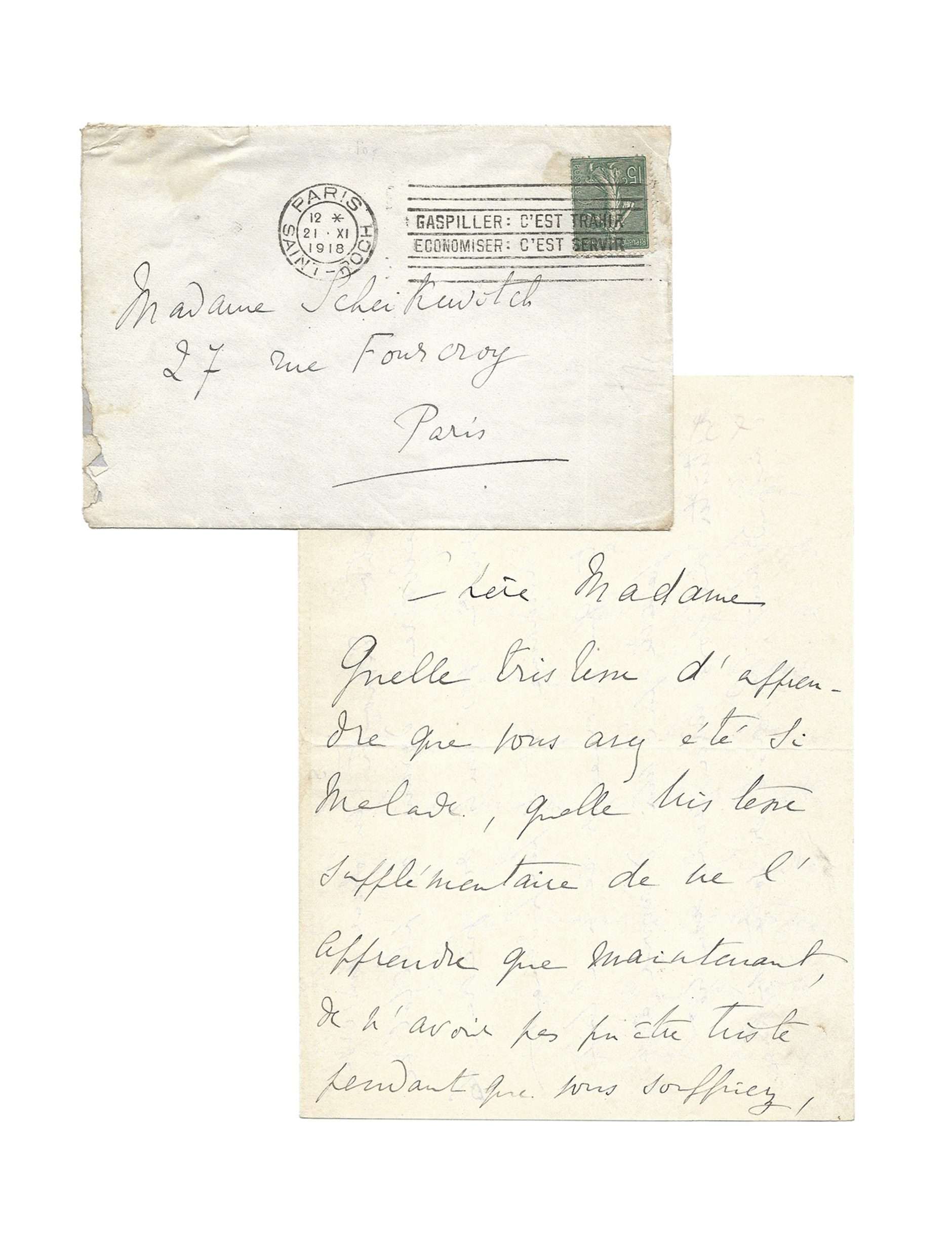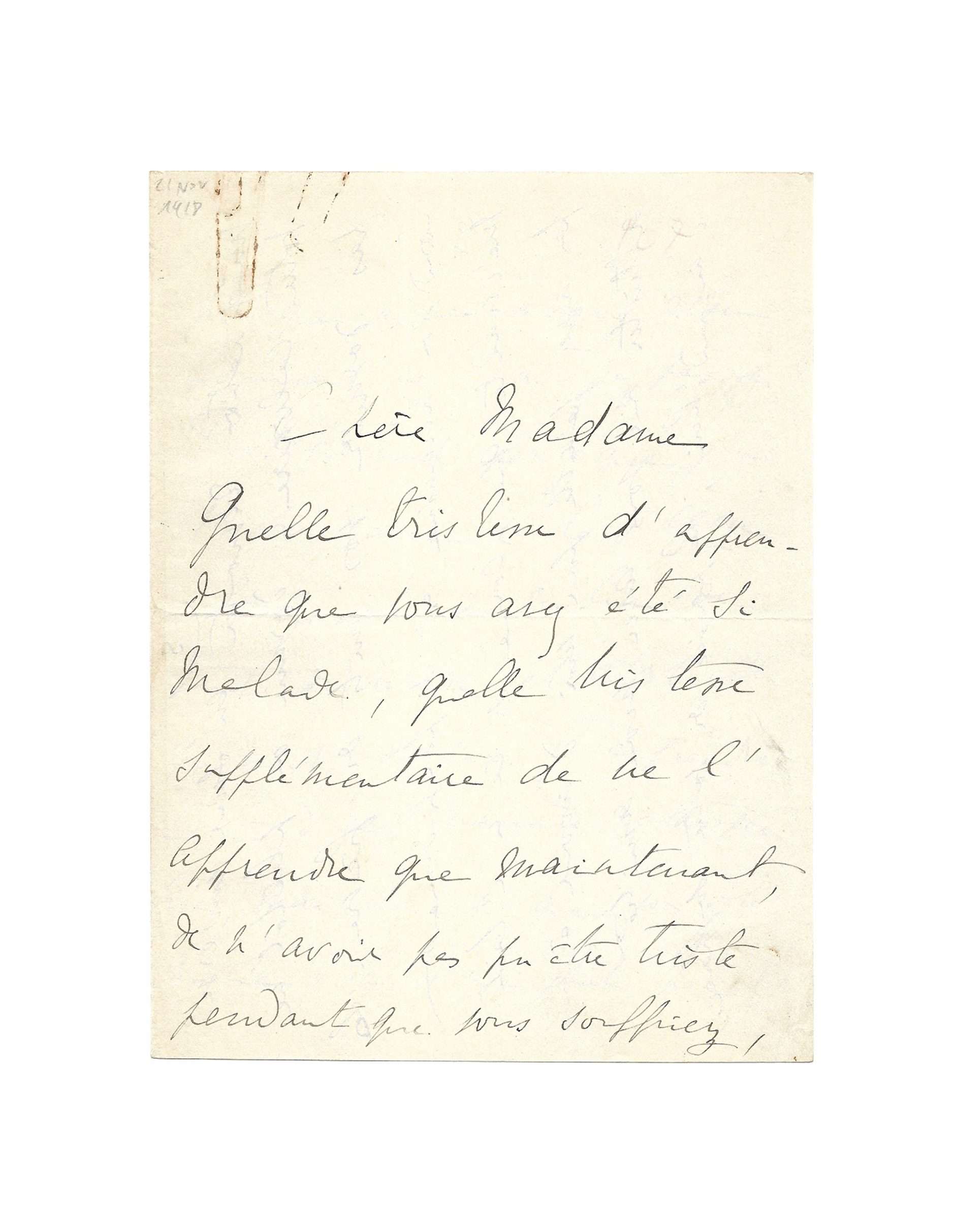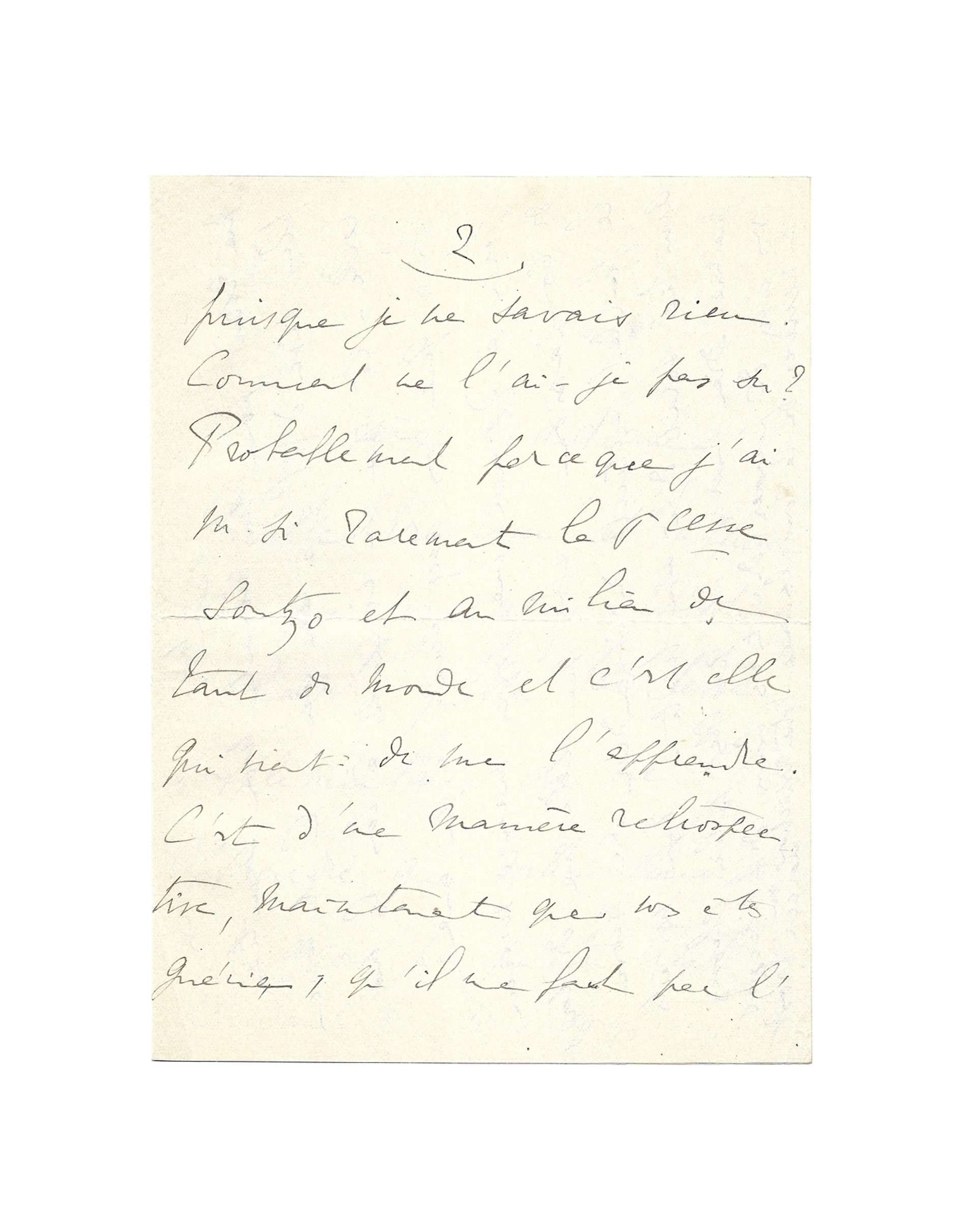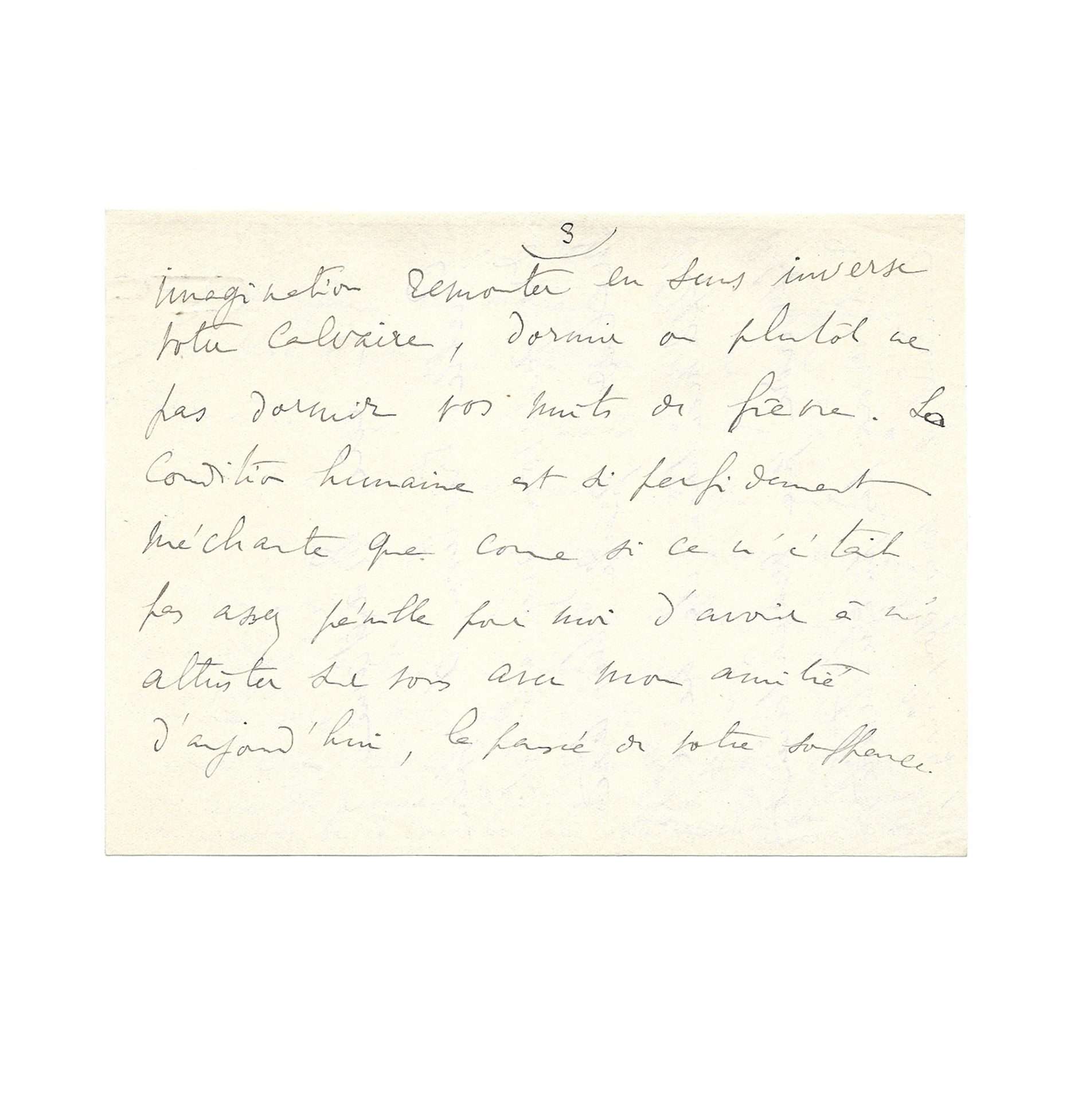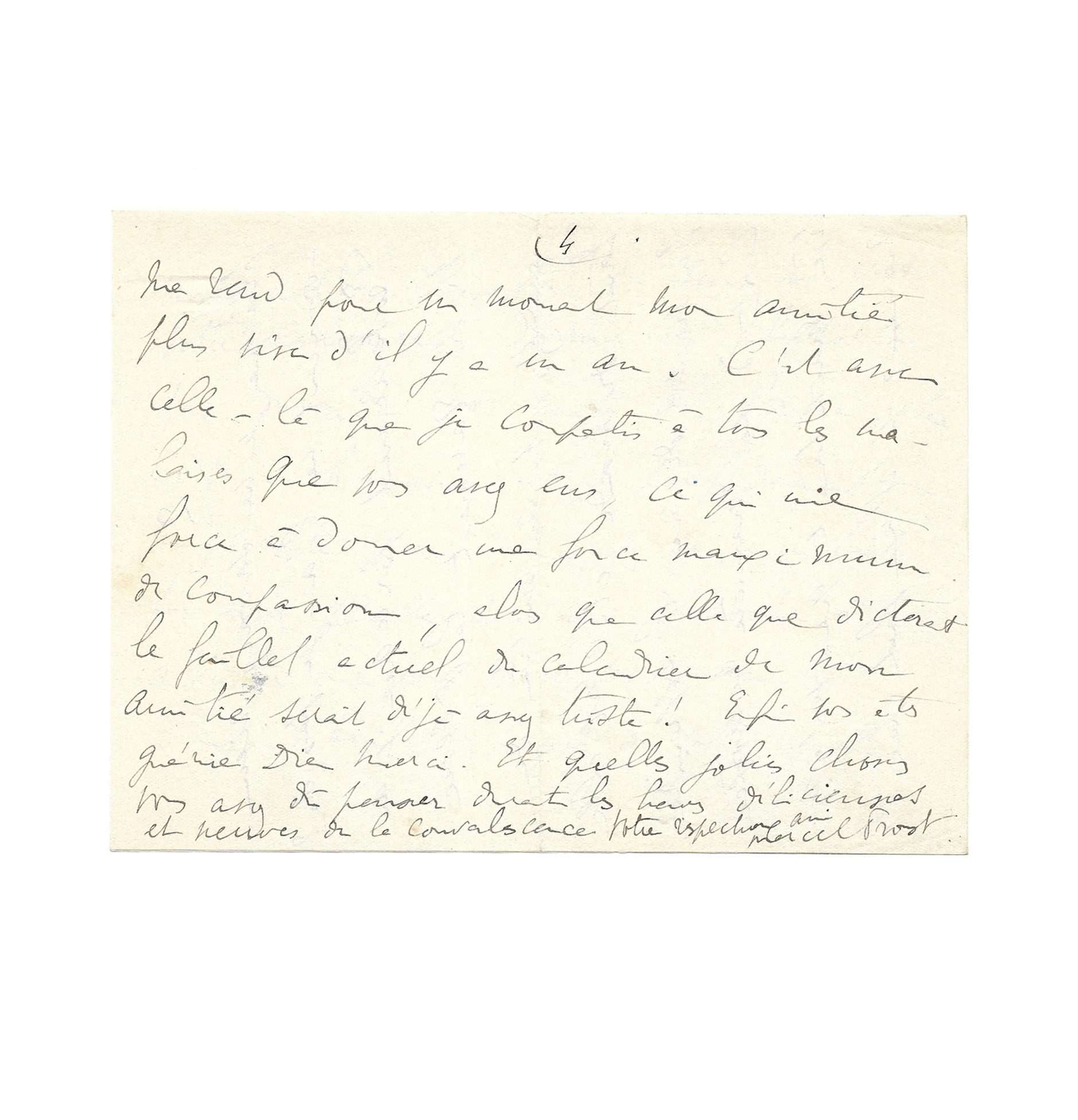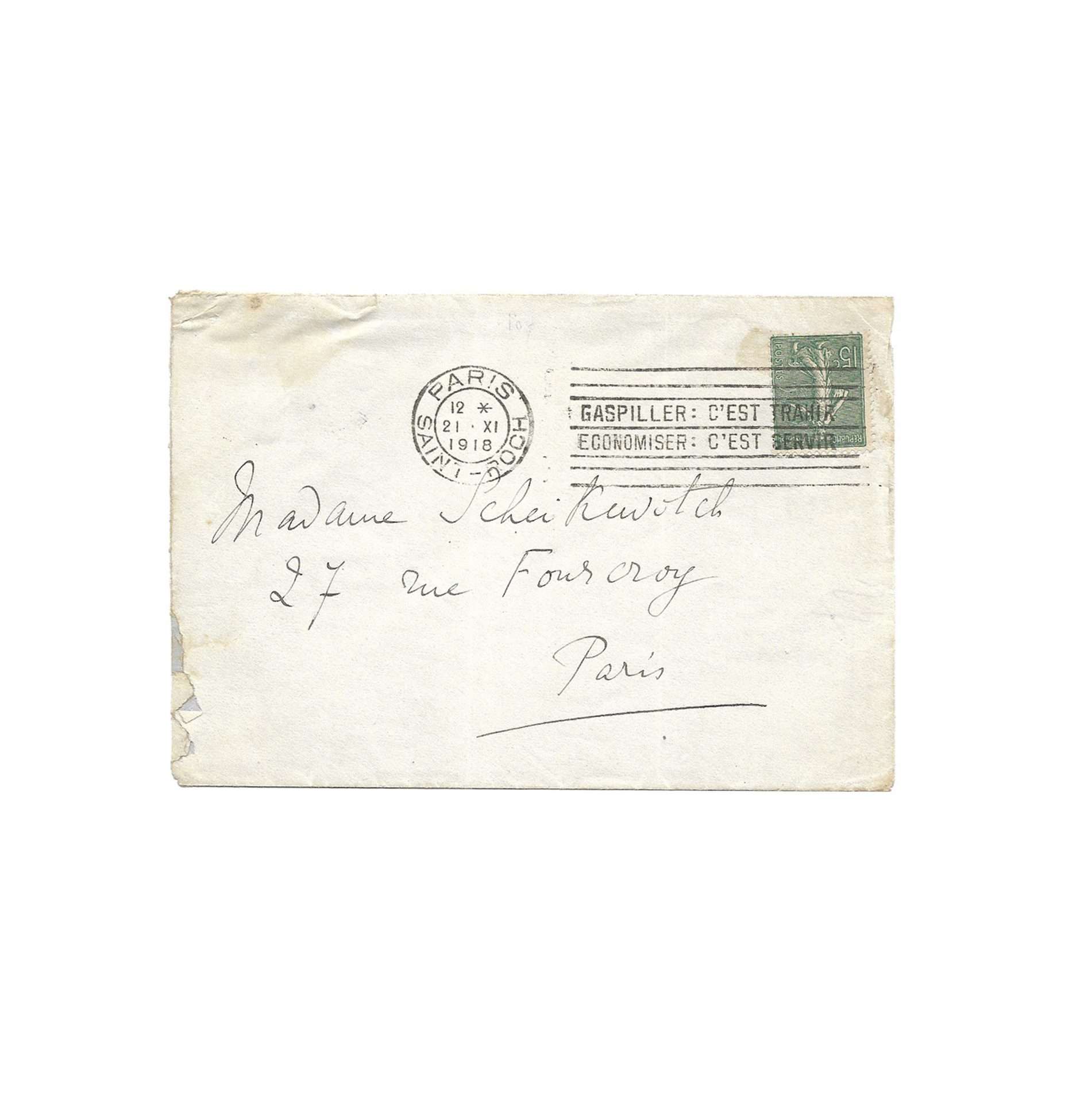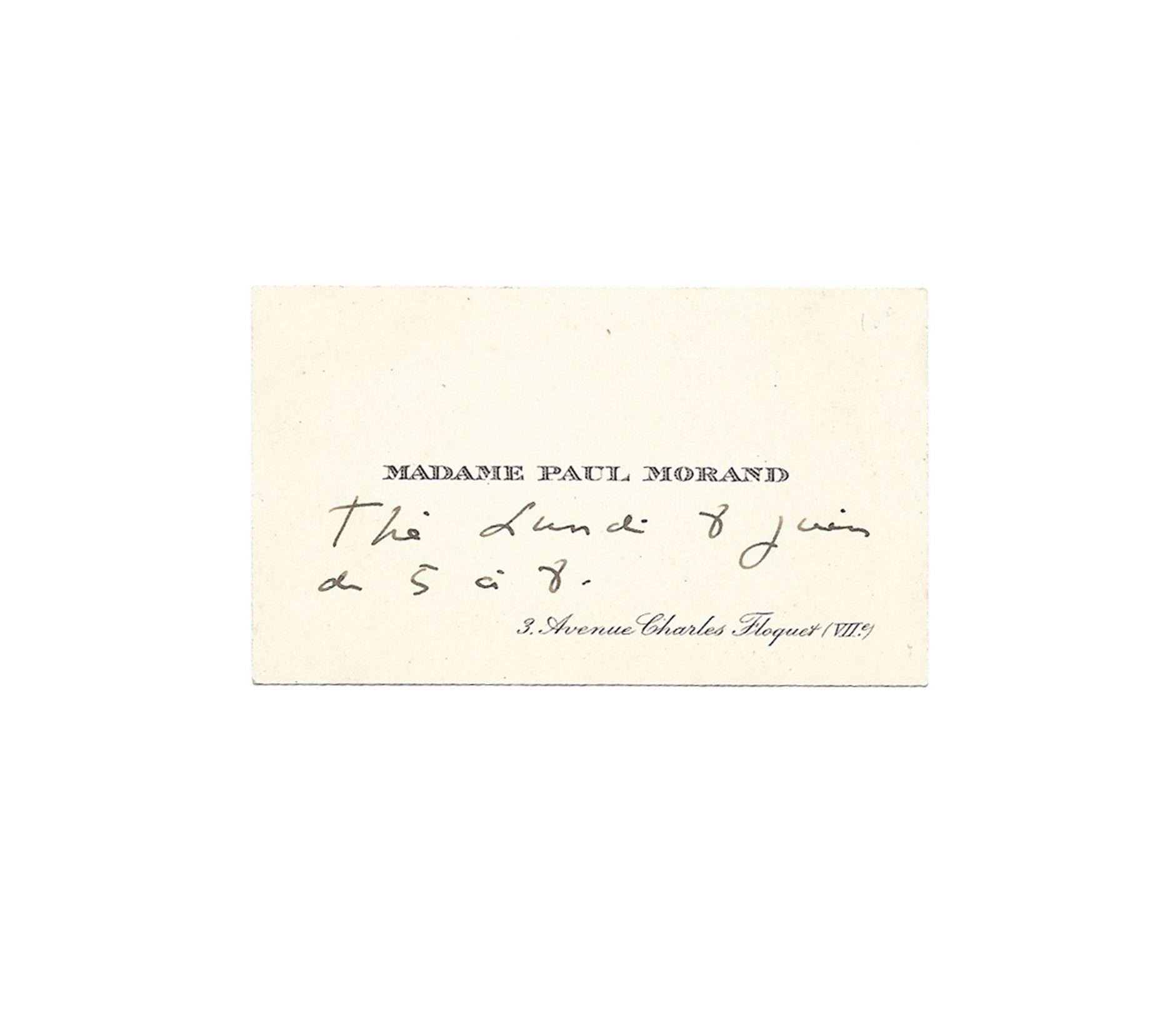PROUST, Marcel (1871-1922)
Autograph letter signed « Marcel Proust » to Marie Scheikévitch
[Paris, 21st November 1918], 4 p. in-8°
« The human condition is so treacherously wicked… »
Fact sheet
PROUST, Marcel (1871-1922)
Autograph letter signed « Marcel Proust » to Marie Scheikévitch
[Paris, 21st November 1918], 4 p. in-8°
With autograph envelope, stamped and obliterated
Clipper mark, previously mounted (see scans)
Having just been informed that Marie Scheikévitch had survived the Spanish flu, Proust hastens to write to the lady who had once helped him with the publication of Swann’s way
« Chère Madame,
Quelle tristesse d’apprendre que vous avez été si malade, quelle tristesse supplémentaire de ne l’apprendre que maintenant, de n’avoir pu être triste pendant que vous souffriez, puisque je ne savais rien. Comment ne l’ai-je pas su ? Probablement parce que j’ai vu si rarement la Princesse Soutzo et au milieu de tant de monde et c’est elle qui vient de me l’apprendre.
C’est d’une manière rétrospective, maintenant que vous êtes guérie, qu’il me faut par l’imagination remonter en sens inverse de votre calvaire, dormir ou plutôt ne pas dormir vos nuits de fièvre. La condition humaine est si perfidement méchante que, comme si ce n’était pas assez pénible pour moi d’avoir à m’attrister sur vous avec mon amitié d’aujourd’hui, le passé de votre souffrance me rend pour un moment mon amitié plus vive qu’il y a un an. C’est avec celle-là que je compatis à tous les malaises que vous avez eus, ce qui me force à donner une force maximum de compassion, alors que celle que dicterait le feuillet actuel du calendrier de mon amitié serait déjà assez triste ! Enfin vous êtes guérie, Dieu merci. Et quelles jolies choses vous avez dû penser durant les heures délicieuses et neuves de convalescence.
Votre respectueux ami
Marcel Proust »
An intimate of Proust who did much effort in using her network for the publication of the first volume of The Search :
Marie Scheikevitch (1882-1964) was the daughter of a wealthy Russian magistrate and art collector who settled in France in 1896. George D. Painter described her as “one of the smartest and most prominent ladies of the new generation.” Patron of artists and writers, she frequented salons and then founded her own. She was friends with Jean Cocteau, Anna de Noailles, Reynaldo Hahn, the Arman de Caillavet family, among others.
A feeling of singular quality united Marcel Proust to Marie Scheikévitch. Although they met briefly in 1905 in Mme Lemaire’s salon, it was in 1912 that they really get to know eachother. There followed a correspondence that lasted until 1922, the year of the writer’s death. Seeing each other “almost every day” as she would later say (friends writing all the less as they see each other more), we know only 28 letters from Proust addressed to her.
She opened to him the doors of her salon, frequented by all that Paris had of illustrious personalities in literature and arts, so that he paid tribute to her in Sodome et Gomorrhe under the veil of Madame Timoléon d’Amoncourt, “a charming little woman, of a spirit, like her beauty, so ravishing, that only one of the two would have succeeded in pleasing “.
A fervent admirer of the writer, she spent a great deal at the time of the publication of the first volume of The Search, trying everything to put Proust in touch with the Parisian personalities she considered most capable of helping him. It was she who recommended him to her lover Adrien Hébrard, the influential director of the newspaper Le Temps, to obtain the famous interview of November 12, 1913 by Élie-Joseph Bois, on the eve of Swann‘s publication: This was the first significant article published in the major press and devoted to The Search. To thank her, Proust sent her a major inscription (recently acquired by the BnF) when Swann was published.
Born Hélène Chrissoveloni, Princess Soutzo (1879-1975) was introduced to Marcel Proust on March 4, 1917 at the Larue restaurant through Paul Morand (whom the latter would marry ten years later, in 1927). The meeting between Proust and the princess remained memorable, the writer having suggested that she bring together the Poulet quartet at the Ritz to perform César Franck (Journal d’un attaché d’ambassade, 1916-1917 (1963), Gallimard, 1996, p. 171-172; Journal inutile, t. II, p. 131).
We include:
An autograph carte-de-visite from Hélène Soutzo Chrissoveloni, madame Paul Morand
An invitation for tea time
N.p.n.d, 1 p. in-24°
With autograph annotation: « Tea Monday 8th June between 5 and 8 » (see scan)
The Morands lived at 3, avenue Charles Floquet in the 7th arrondissement of Paris, from 1927 to 1976.
Provenance:
Catalogue Andrieux, 12 mars 1928; n°190
Then private collection
Bibliography:
Lettres à Madame Scheikévitch (1928), p. 107-108
Correspondance générale, t. V, p. 259-260, n°XXIV
Correspondance, Kolb, t. XVII, n°203
Marcel Proust II – Biographie, Jean-Yves Tadié, Folio, pp. 391-392
